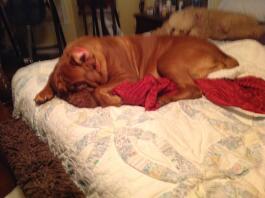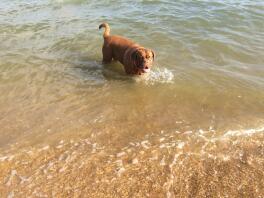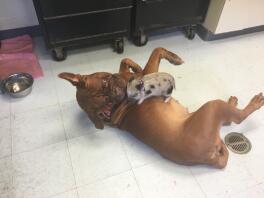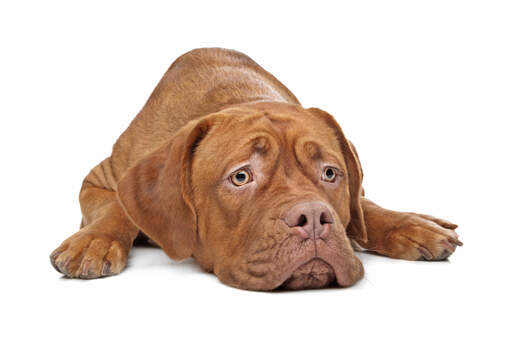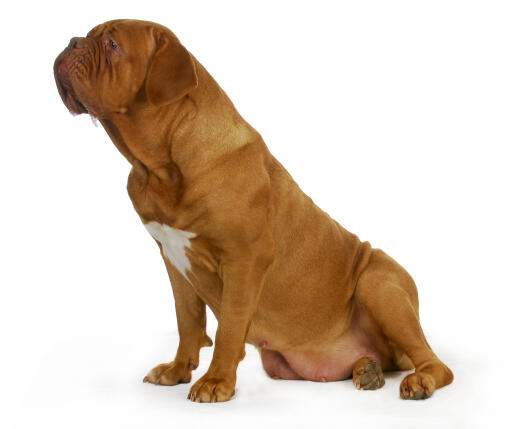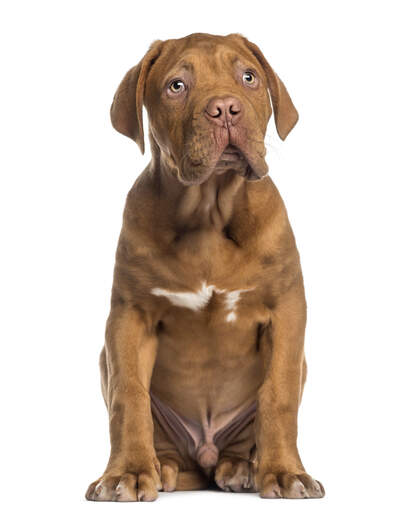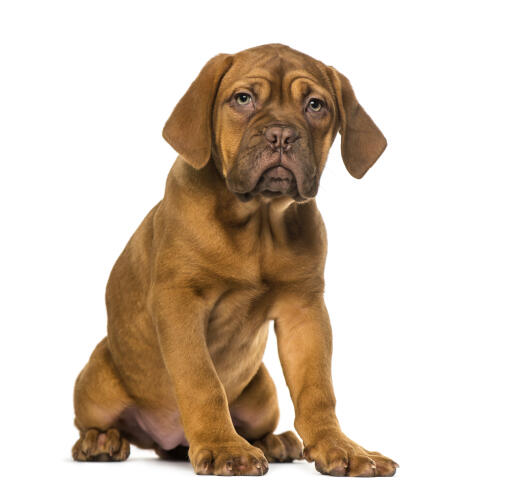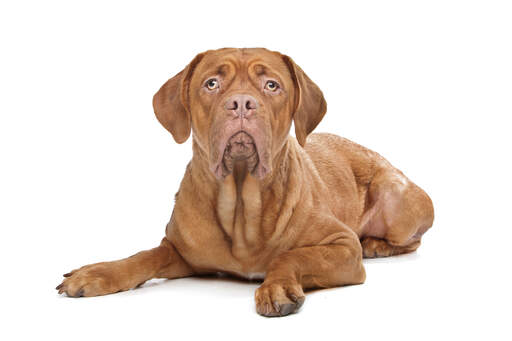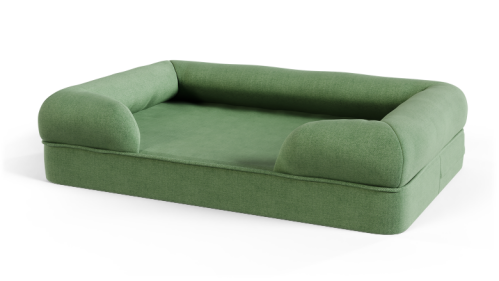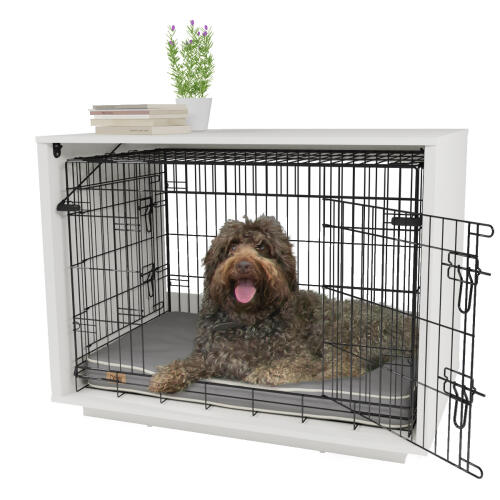Dogue de Bordeaux hund





History
The Dogue de Bordeaux is a large mastiff type breed that originates in France and more specifically the Bordeaux region. Dogs of this type has been around since the 1300's, but the uniformity of the current breed we know, was first introduced around 1920. The breed was used for many things, including carting and pulling objects as well as guarding sheep/goats and property. The French wanted to keep blood lines as pure as possible, so any black masks were seen as breeding with the English Mastiff, therefore a pure red mask and pink nose was preferred.
Behaviour
The DDB is a large breed, with a muscular body and is strong. They are very gentle dogs and loving towards their family. They are good with children within the home but their size can often knock a small child over. They are devoted to their owners and will want to be with you at all time. Left alone they can be destructive, because they miss you. The DDB is calm and patient and loves people, but can and will be wary of strangers in the home. They make excellent watch and guard dogs, but rarely attack unless told/trained to do so. Often the presence of this breed is enough to deter intruders. Being such large, powerfully built dogs, obedience training is vital to prevent them running amok. It needs to be started from day one, but they aren't the easiest breed to train, having a stubborn streak. Teaching a Dogue de Bordeaux to heel is one of life's greatest challenges, but once you have mastered that, the rest will seem easy. Teaching them the basics, such as sit and including socialisation with people and other dogs inside and outside the home should be a priority, as they can be funny with other dogs. A calm, confident approach is best when training. This breed does well in obedience, carting, water rescue and they make great therapy dogs. This affectionate huge lump of a dog will want to cuddle up to you, sit on your lap and snooze on your bed. Providing somewhere comfortable and close to you is probably the best solution. Or getting another sofa. Beware the drool, it is constant and will be everywhere. The DDB needs a fair amount of daily exercise, but it's too demanding. As long as they have a chance to run around and play with you, they will be happy.
The short coat needs regular brushing to remove dead hair, but they don't really shed as much as other dogs. Drool, on the other hand, will take more time to sort out... Health wise, they can suffer Canine Hip Dysplasia and sometimes breathing related issues due to their head shape.
Temperament
Dogues de Bordeaux have calm and reserved temperaments. They love to pretend they are a lap dog and get onto the sofa with you whilst drooling/licking you with plenty of slobber. If this doesn't put you off then you can be happy knowing that your Dogue will be devoted to you and your family enjoying moderate exercise daily to keep their powerful bodies in shape.
Early socialisation is important to prevent either shyness or aggression towards other dogs and strange people. Dogues will rarely seek out a fight but their proud nature means they won't back down. This combined with their immense power means they can cause serious injury and even kill other dogs so plenty of socialisation and training is paramount.
Health Problems
Health problems that may affects Dogues de Bordeaux include canine hip dysplasia (CHD), elbow dysplasia, allergies, cancer, heart disease, bloat, epilepsy, seizures, entropion (inward rolling of eyelid which causes irritation to eyeball) and ectropion (outward rolling of eyelid which can cause watery eyes and irritation to eyeball through dryness),
Breed Details
- Status: Common
- Life Expectancy: 5 - 8 years
- Vægt: 54.5 - 65.2 kg
- Rare: Nej
- Coat: Lavt
- Grooming Requirements: Once a week
- Town or Country: Land
- Minimum Home Size: Large House
- Minimum Garden Size: Small to Medium Garden
- Breed Type: Working Dog
- Størrelse: Giant
- Energy Level: Lav
- Exercise Required: Up to 1 hour
Billeder af Dogue de Bordeaux
